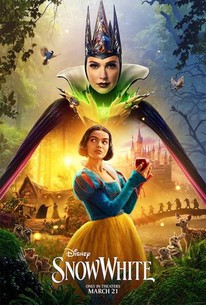Introduction to Disney’s Snow White
Disney’s “Snow White and the Seven Dwarfs” is a timeless classic that has enchanted audiences since its release in 1937. The first full-length animated film ever, it set the standard for all animated films that followed. The story revolves around a beautiful young princess named Snow White who becomes the target of her evil stepmother, the Queen. With captivating animation, memorable music, and powerful themes of love and friendship, “Snow White” remains a beloved film for generations.
Story
The story begins in a kingdom where a queen, obsessed with being the most beautiful of all, asks her magic mirror. When it tells her that Snow White has surpassed her beauty, the queen’s jealousy ignites and leads her to plot Snow White’s death. She orders the huntsman to take Snow White into the forest and kill her, but the huntsman, unable to cope with the deed, frees Snow White. Alone and frightened, Snow White stumbles upon a charming cottage belonging to the seven dwarfs. The dwarfs – Doc, Grumpy, Happy, Sleepy, Bashful, Sneezy and Dopey – take her in, and she finds comfort and friendship in their company.
However, the Evil Queen discovers that Snow White is still alive and devises a series of sinister plans to eliminate her once and for all. From a poisoned apple to an old man in disguise, the Queen’s determination to reclaim her title as the fairest leads Snow White into dramatic confrontations and moments of danger. Ultimately, the prince’s true love’s kiss awakens him from the enchanted sleep caused by the poisoned apple, leading to a happy ending.
Animation and artistry
One of the most notable features of “Snow White and the Seven Dwarfs” is its groundbreaking animation. Disney’s animation team used a variety of techniques to create fluid movements and lifelike expressions, paving the way for future animated films. The use of vibrant colors and detailed backgrounds enhances the storytelling and immerses viewers in Snow White’s enchanting world.
| Animation Techniques | Cinematography |
|---|---|
| Cel Animation | Layers of transparent celluloid sheets were used to create the illusion of movement. |
| Multi-Level Camera | A revolutionary camera technique that added depth to animated scenes. |
| Live Action Reference | Animators used live-action footage to study human movement and facial expressions. |
Music and Songs
The music for “Snow White” is another important element in the film. The songs, composed by Frank Churchill and Larry Morey, have become iconic and have added to the charm and emotion of the film. The most famous song, “Someday My Prince Will Come,” encapsulates Snow White’s longing for love and happiness, while the dwarfs’ “Heigh-Ho” showcases their playful spirit and camaraderie.
- Someday My Prince Will Come
- Heigh-Ho
- I Hope
- While You’re Still Working
Characters and Voice Acting
Snow White and the Seven Dwarfs is brought to life by a talented cast of voice actors. Snow White, with her innocent charm and kind heart, is portrayed as a beacon of hope and goodness. Each dwarf has their own unique personality that adds humor and warmth to the story. The Queen, on the other hand, embodies jealousy and evil, creating a compelling counterpart to Snow White.
Snow White’s Legacy
Since the release of Snow White and the Seven Dwarfs, “Snow White” has left an indelible mark on popular culture. It established Disney as a powerhouse of animation and storytelling, leading to a series of beloved animated classics.




 37/25
37/25